If you have anything remotely to do with teen or tween girls, you have probably heard the words ‘drunk elephant’ and will have some knowledge it has nothing to do with that weird Disney film from the ‘40’s, Dumbo, where the eponymous elephant gets literally drunk with his bird friend and basically trips balls.
Drunk Elephant is a product that has had a meteoric rise in the last couple of years in the teen and tween market, with their seriously clever marketing strategy of hammering young women via social media and wildly popular influencers and their frankly genius clean and coloured packaging that has a lot in common with another teen and tween addictive favourite – vapes.
Using a bright colour coda that sorts tweens into skin ‘types’ and language like ‘philosophy’, ‘smoothies’ and ‘drunk’; it lets teens and tweens into a gorgeous, colourful cult that leans into pleasure and fun but also healing and wellness. The website is littered with affirmations from customers drunk on the pleasure extolling a world where they can now take barefaced selfies, and they have the courage to go makeup free.
It's not remotely surprising this is having a powerful effect on girls as young as ten. In an increasingly disconnected world, where children and teens are riddled with anxiety and are offered few reassurances from old institutions, a product that offers to fix not just the outside but also the inside is going to be wildly compelling.
Leaving aside for a moment, some of the problematic ingredients that have no business being applied to young skin, let’s consider the philosophy, seeing as they are keen on the word. Drunk Elephant, like a lot of brands aimed squarely at teens and tweens are not about selling a one-off moisturiser or toner but are all about selling a complex regime or routine (anyone already see the problem with these words), that are not only mind-bendingly time-consuming, expensive, but kind of oppressive in that the implication is one doesn’t work without the other. They are selling kids a literal regime where the real value is placed not on the casual or occasional user, but the true faithful who have bought the whole lot and are following the regime.
When you talk to the majority of young people about what they believe in, fewer and fewer of them ever mention stuff like politics, leaders, ideas or religion – all that weirdy, beardy old stuff – but more and more of them do mention things like affirmations, manifesting, celebrities and spirituality. Brands have squarely understood the deep-seated human need for belonging and enlightenment, but rather than go to church or open a book, modern kids are far more likely to open TikTok and buy stuff that promises happiness and drunkenness (with no need for the red wine or crackers.)
One might ask, what’s the problem if it’s making the kids happier – but the trouble is, when the product bottle is empty, all that’s left is a need for MORE and panic your face might fall off if you don’t restock. And what of the millions of teens and tweens who can’t afford expensive products (it’s not just Drunk Elephant) or who have parents or carers who don’t want to sacrifice their kids to beauty cults where the snake oil is retinol and ‘wellness.’
The word ‘cult’ is a strong word, but the practices of modern beauty brands have remarkably similar MO’s. They encourage their ‘followers’ (another troubling word) to become their biggest evangelists with myriad Gen A tales of enormous peer pressure (Mabel, 12: “You get laughed at if you don’t use Drunk Elephant – I got teased after swimming for having Boots moisturiser), feeling the need to advertise their products on the windowsill so the world can see they are the faithful to eschewing all other items on Christmas and birthday wish-lists, so they can ask for the full range.
One of the reasons I started The Respect Project was to challenge the brutal beauty standards being applied to young people because I don’t think they are remotely about looking or feeling good. In fact, they empirically about making young people feel like they look bad, so they feel bad and salvation lies in an expensive 7-step regime that will never offer answers or happiness, but dangles the possibility provided you keep buying more, more, more.
Only the truly faithful welcome.




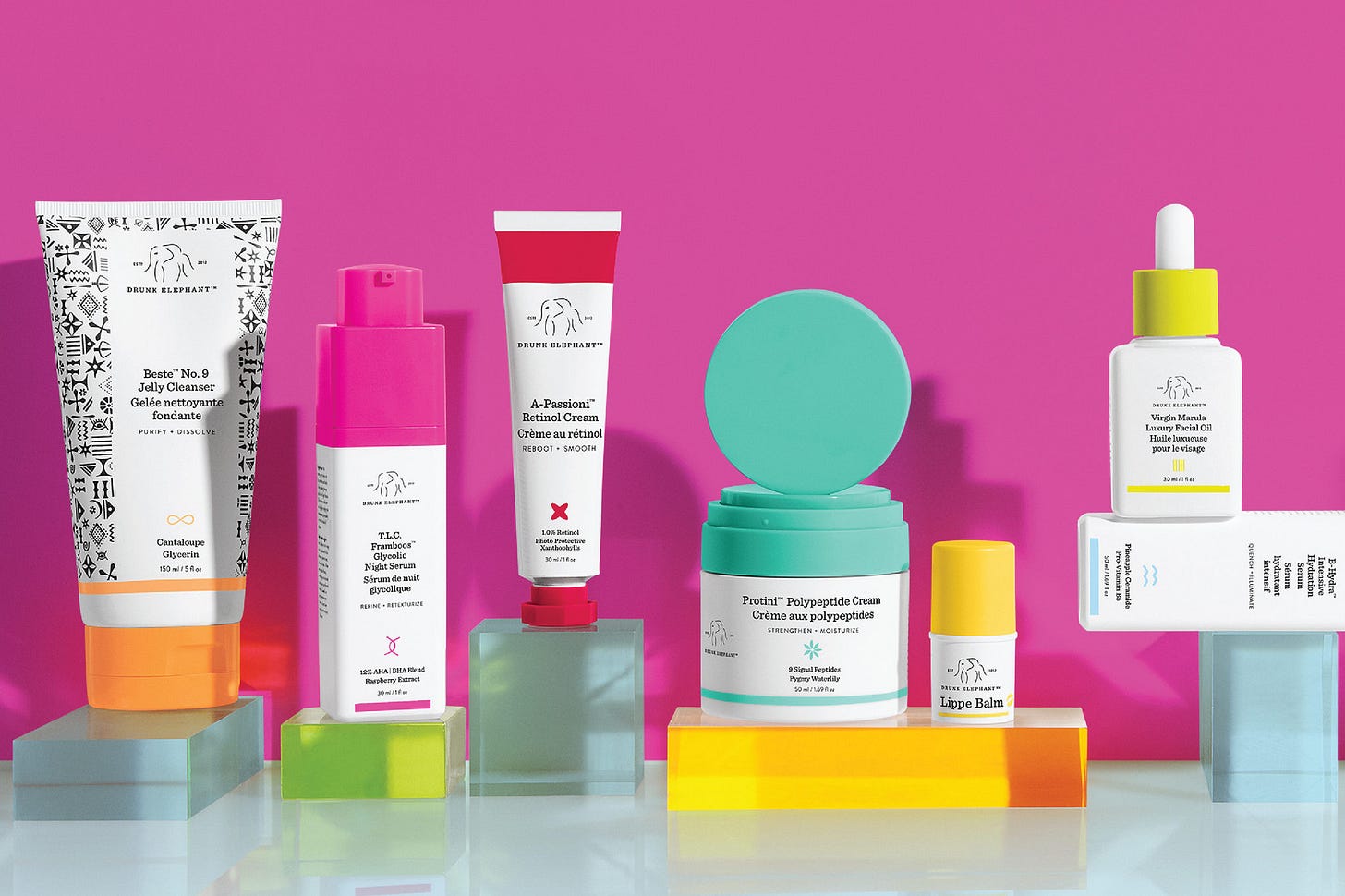
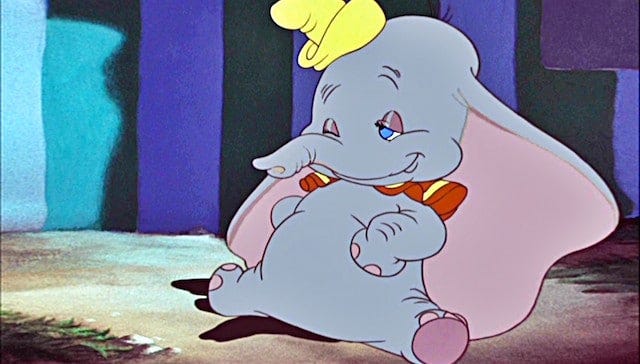
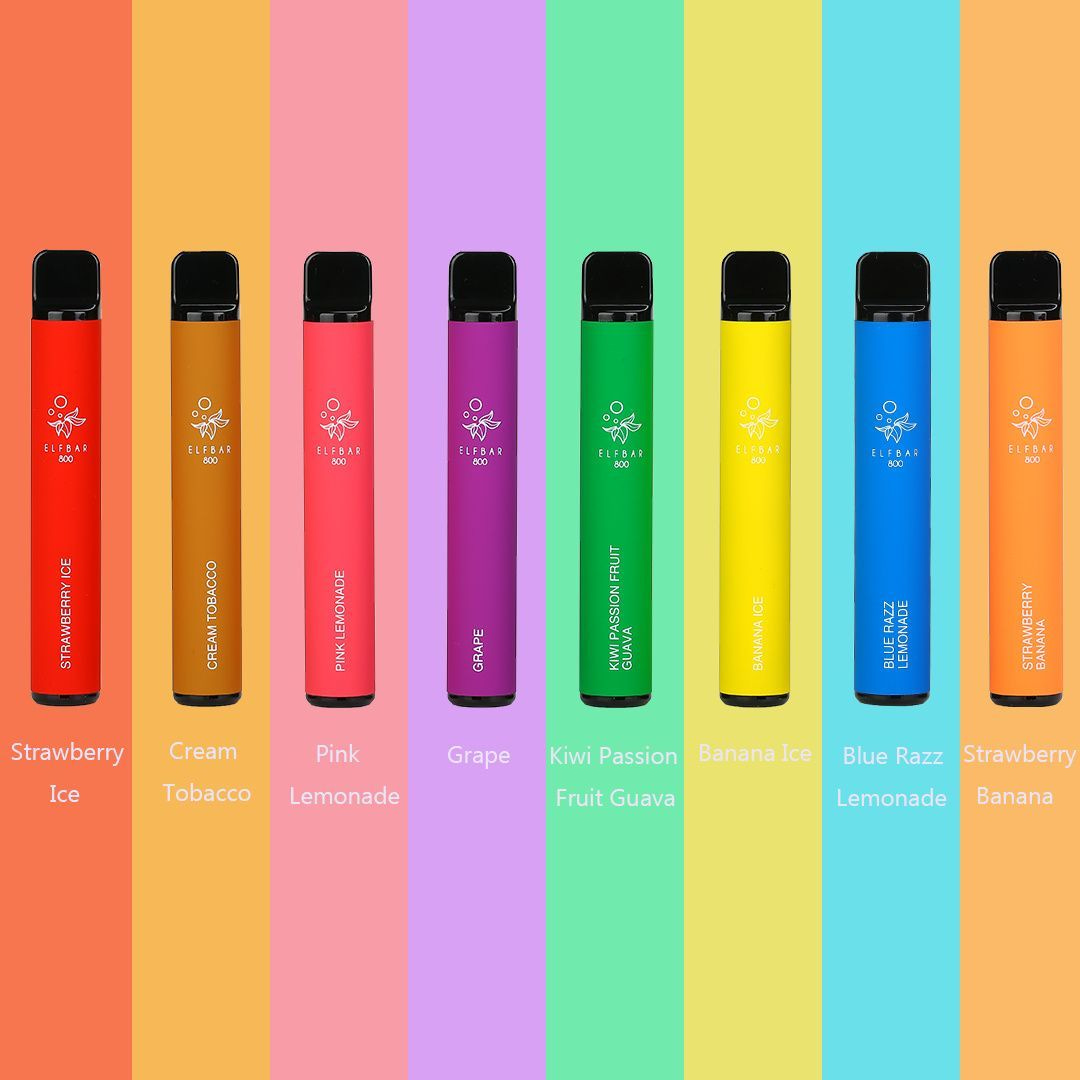
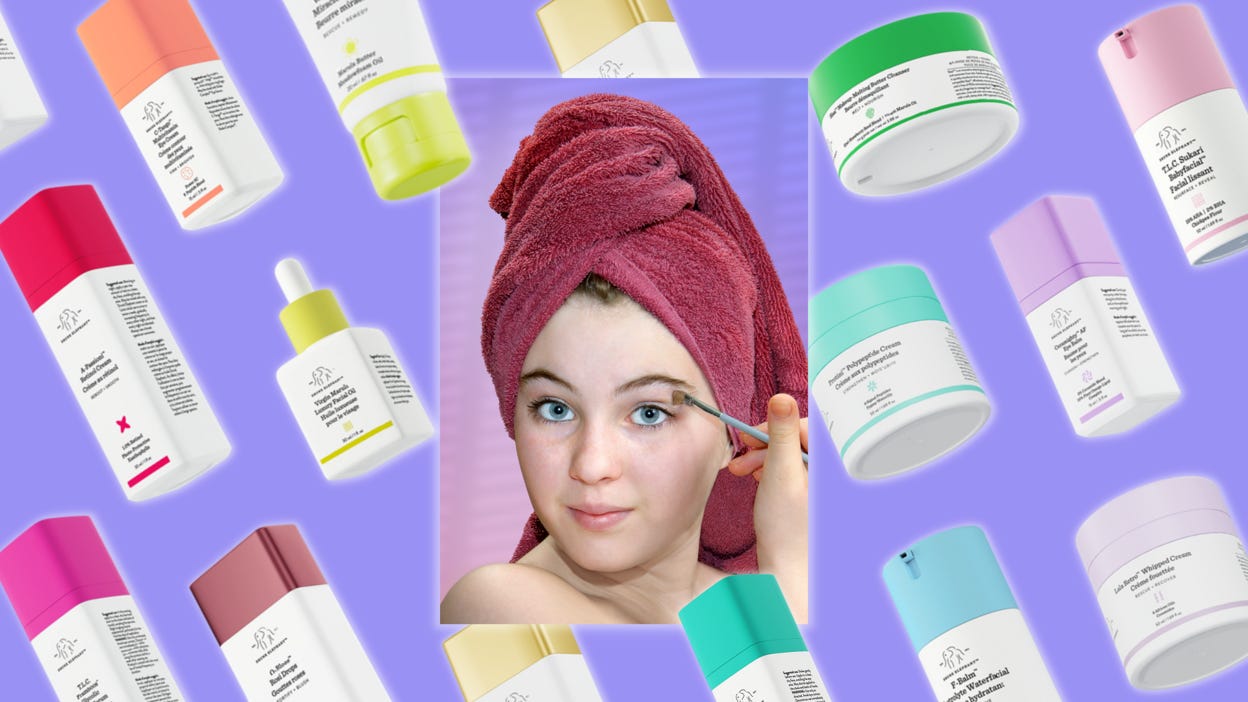

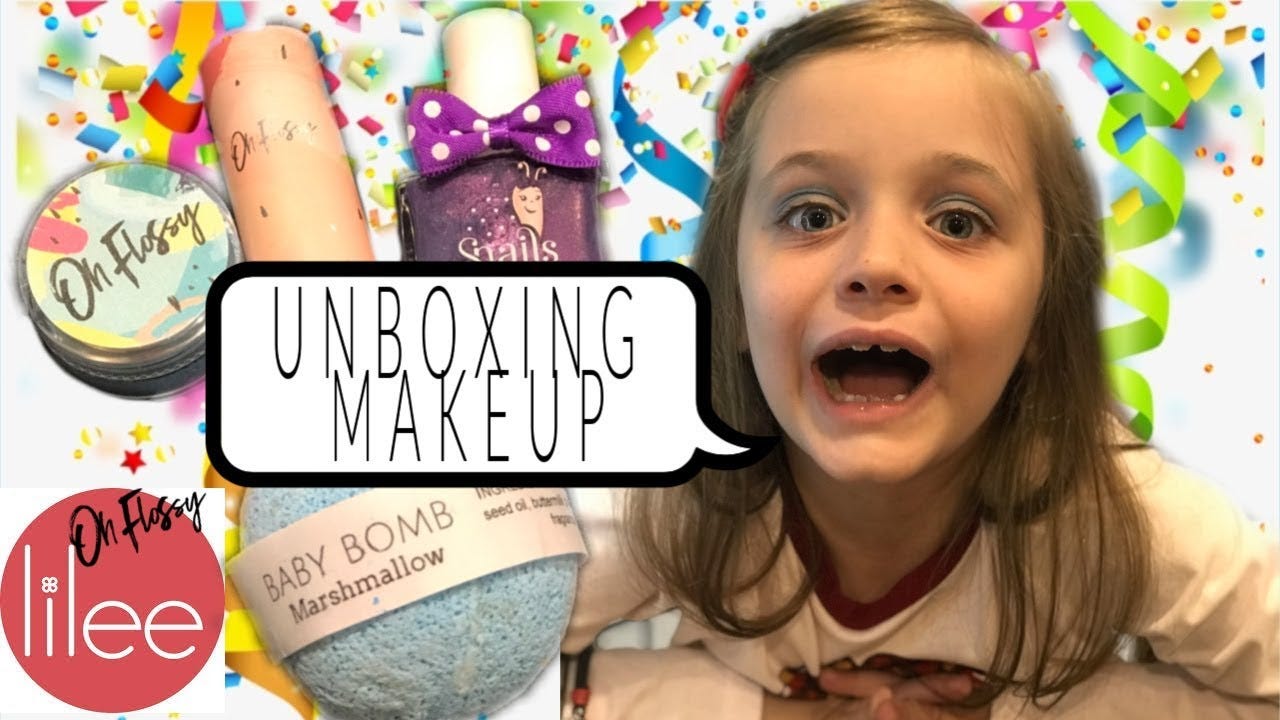
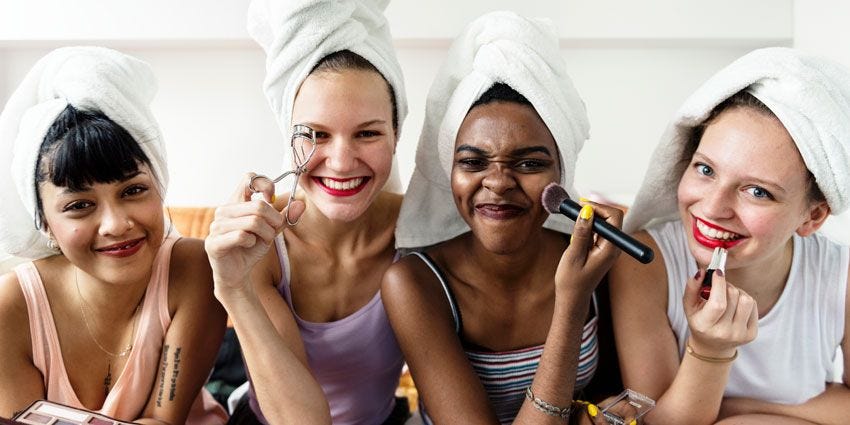
A really great and insightful article as always!
This is going in our next feature on our new tik tok account mumnmoo which is myself (45 yr old mum, and 8 year old daughter ruby(moo) who just loves anything viral when it comes to skincare! So we see skincare and wellness from very different angles! Probably a silly question but do you have a tik tik account where we can tag you? (just incase you have !)